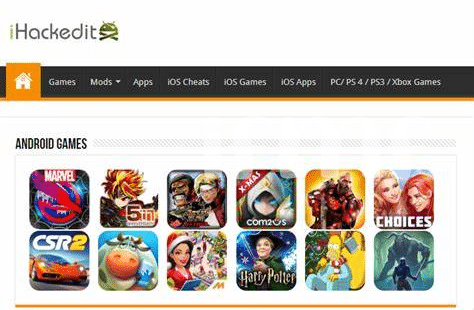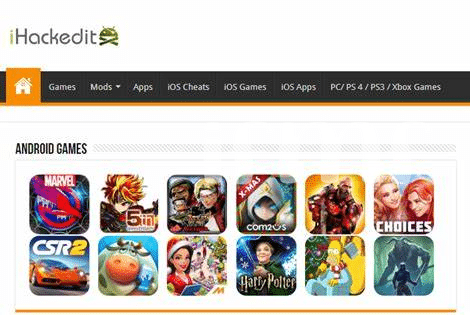
Table of Contents
Toggle- Unwelcome Guests: Malware Hidden in Apps 🦠
- Privacy Invasion: How Crackers Steal Data 👀
- Legal Pitfalls: the Cost of Piracy ⚖️
- Update Woes: Missing Out on App Support 🔄
- Device Vulnerability: Compromised System Integrity 🛡️
- The Moral Dilemma: Ethics of Using Cracked Apps 🧭
Unwelcome Guests: Malware Hidden in Apps 🦠

Imagine this: you download a popular app from a website that promises you the full version for free. But, as you tap open your shiny new game or tool, what you might not realize is that you’ve also opened the door to sneaky malware—those nasty bits of software that mean to harm your device or steal your information. These digital stowaways can turn your phone into a cryptojacking tool, working overtime in the shadows to make money for someone else—draining your battery and data in the process. And if you think that’s bad, consider the risk of becoming a ‘bagholder’ with a compromised phone, holding onto an asset that’s decreasing in value. Remember, not all that glitters is gold, and in the realm of cracked apps, the true cost often comes in the form of violated privacy, as personal details are lifted quietly from underneath your fingertips. Next thing you know, your supposed ‘free’ app has sold your data to the highest bidder. It’s a game of cat and mouse, a chance some take that can end with your digital life turned upside down.
| Risk Factor | Consequence |
|---|---|
| Malware in Cracked Apps | Device and data compromise, potential financial loss |
| Cryptojacking via Malware | Draining of device resources, increased data and battery usage |
| Privacy Violation from Data Theft | Loss of personal information and potential identity theft |
Privacy Invasion: How Crackers Steal Data 👀
Imagine the excitement of finding an app that you’ve been eyeing, but instead of paying for it, you get it for free from a site that offers cracked versions. This might sound like a smart move, but it’s akin to leaving your house key under the mat while on vacation, inviting trouble. These unauthorized app sources can secretly inject harmful software into your device. Just like a trojan horse, what seems harmless could create a backdoor for cybercriminals to sneak in. They don’t just aim to disrupt; they often target your personal information. Messages, contacts, and even financial data could be at risk.
Now, picture your smartphone as a treasure chest. When you install a cracked app, you might unknowingly hand over the key to digital pirates. These bad actors can then track your online footprints, laying bare your digital life as they scour for valuables. They harness complex tricks, not so different from those ‘pump and dump’ schemes in the cryptocurrency world, acing a scam that could cost you far more than the price of a legal app. So, the next time you’re tempted by a freebie, remember to DYOR, and don’t fall prey to the false economy of cracked apps. As an extra tip for protecting your privacy, consider using reliable tools like the best face shape detector app for Android, wich can help you keep a check on what data you’re sharing online.
Legal Pitfalls: the Cost of Piracy ⚖️
Diving into the world of free apps might seem like a wallet-friendly option, but it’s a playground with hidden traps. Imagine you’re out there, catching the waves of the latest apps without spending a penny. Sounds fun, right? But here’s the twist: using these cracked apps may bring you face-to-face with some serious legal woes. It’s akin to sneaking into a cinema to watch a movie without buying a ticket—sooner or later, you might get caught. And when that happens, it’s not just a slap on the wrist; we’re talking hefty fines or even a courtroom drama.
Now, let’s say you’re a Bitcoin Maximalist, thriving on the edge of digital trends. You might think of cracked apps as a shortcut in your tech-savvy world. But consider this – being tagged as a ‘Bagholder’ by authorities could be your next big title if you’re caught in such piracy acts. Goverment bodies and app developers are on the hunt for pirates, and they’re not playing games. Even though the chances might seem slim, getting rekt by legal pursuit is a risk that could bring a stack of bills or legal headaches to your doorstep. Plus, let’s not ignore the negative karma that comes from gaming the system.👀🔄🛡️
Update Woes: Missing Out on App Support 🔄
Imagine snagging that app you’ve been coveting, except instead of the official version, you go off-road, choosing a cracked one from a less-than-reputable source. Sure, it feels like a victory dance at first—until it’s time for updates; then you’re left stuck on the sidelines. 🔄 Official updates not only squish pesky bugs, but they also serve up fresh features that keep an app in tip-top shape. Miss out on those, and it’s a bit like refusing to upgrade your flip phone in a smart-tech world—what was once shiny and new quickly becomes yesterday’s news.
Gravitating towards cracked apps, you gamble with more than just missing out on the latest bells and whistles. Let’s say something goes awry with your app; without legit support, who do you turn to? An internet abyss of questionable ‘fixes’ is no match for the real deal—a dedicated team ready to iron out your digital creases. And should the app makers roll out an exciting new update, your cracked version remains in the dark ages, often incompatible with current data files or unable to communicate with other devices that moved on to better versions.
If you’ve ever thought about transforming your selfies into a professional endeavor, the perfect way to start is by analyzing your facial features. Utilizing the best face shape detector app for Android can be an essential tool in this journey. But if you’re stranded with an outdated, cracked app, you miss the innovation boat—those regular enhancements app developers work hard on to bring you flawless experiance.
So, go on and resist the urge to score a quick app win. By sticking to the straight and narrow, you’ll keep your tech lifestyle seamless, secure, and at the helm of innovation—without falling into the trap of being a bagholder with a broken app.
Device Vulnerability: Compromised System Integrity 🛡️
Imagine the shock and frustration when, after downloading an app you thought would be a fun addition to your phone, it turns out to be more of a trick than a treat 🎃. Unbeknownst to many, opting for apps from dubious sources can be akin to installing a Trojan Horse. Instead of a wooden statue, it’s a shiny app that promises the moon but secretly opens the door to cybercriminals 🚪💻. These resourceful rogues don’t necessarily want to crash your party—they’re there to surreptitiously shill their own agendas. By the time you realize something’s not quite right, your personal digital sanctuary has turned into a haunted house 🏚️, with your sensitive info gathered up like candy by a costume-clad trickster. This isn’t just FOMO inducing; it’s a spine-chilling serveillance that can rewrite your online declinition of ‘personal privacy’. And it’s not a matter of if but when these backdoor bandits strike, your device becomes a silent accomplice in their schemes, potentially leading you to become the kind of bagholder that’s left with nothing but digital cobwebs where there was once a secure smartphone sanctuary.
| Risk Factor | Consequence |
|---|---|
| Cracked Apps | Personal info exposed |
| Device Integrity | Lowered security defenses |
| Hidden Malware | Potential data breaches |
The Moral Dilemma: Ethics of Using Cracked Apps 🧭
When we tap that “download” link on a website offering cracked apps for free, it’s like we’ve crossed into a shadowy back alley of the digital world. 🕵️♀️ We might be doing it for the thrill, the savings, or just because we have FOMO seeing others use premium features at no cost. But deep down, we can’t shake off that nagging feeling: are we becoming bagholders of stolen digital goods? It’s a complex web of right and wrong where the lines often blur. Imagine the effort that goes into creating an app – the coding, the late nights, and the dreams woven into each line of code. By choosing the free ride, we might save a few bucks, but at what cost to our internal compass? It could be argued that we’re shortchanging developers, undermining their hard work, and perhaps feeding into an underground economy that thrives on shortcuts and shady dealings. And let’s be real, sometimes it’s not just about what’s legal, but also what feels right in the gut – because at the end of the day, our actions are a reflection of who we choose to be, in the digital realm and beyond. 🧭 Is that free app really worth the heavy weight in our conscience, or should we steer clear and support the creators who build these experiences for us? It’s a choice each of us has to make, untill we come face to face with our own ethical mirror. 🪞



